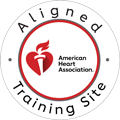ROSC in ACLS: What Happens After Cardiac Arrest
In the world of emergency medicine, few moments are as pivotal as the return of spontaneous circulation, or ROSC. Achieving ROSC means that a patient’s heart has started beating again after cardiac arrest, a critical milestone in advanced cardiac life support (ACLS). However, this is far from the end of the battle. The period following […]
How Are Breaths Delivered Using a Bag Mask Device
Effective ventilation is a critical component of emergency medical care, ensuring that a patient receives adequate oxygen during respiratory distress or cardiac arrest. Whether in basic life support (BLS) or advanced cardiac life support (ACLS), healthcare providers and first responders rely on a bag-mask device to deliver lifesaving breaths when a patient cannot breathe on […]
PALS vs ACLS Why Both Certifications Matter
Advanced certifications play a critical role in saving lives during emergencies. Healthcare professionals must be prepared to handle cardiac and respiratory crises efficiently, which is why certifications like Pediatric Advanced Life Support (PALS) and Advanced Cardiovascular Life Support (ACLS) are essential. CPR Kansas City is a trusted American Heart Association training site, offering high-quality courses […]
Achieving a High Chest Compression Fraction in CPR
In life-saving scenarios, every second counts. Cardiopulmonary resuscitation (CPR) is a critical intervention for patients in cardiac arrest, and the quality of chest compressions plays a pivotal role in patient outcomes. Central to this is the chest compression fraction (CCF), which refers to the percentage of time during CPR when chest compressions are actively being […]
Defibrillation in Action: A Key to Surviving Sudden Cardiac Arrest
Every minute counts—defibrillation within 3–5 minutes of collapse can increase survival rates by up to 70%. When it comes to sudden cardiac arrest (SCA), prompt action is crucial to saving lives. While heart disease and heart attacks are well-known medical emergencies, SCA is less understood yet equally, if not more, critical. For those who are […]
Hands-Only CPR vs. Traditional CPR – What You Need to Know
A life can be saved with a simple action – but which CPR method should you use? Cardiopulmonary resuscitation, commonly known as CPR, is a vital skill for anyone to have. It can mean the difference between life and death during a cardiac emergency, especially when every second counts. CPR Kansas City, an American Heart […]
Pediatric CPR 101: What Every Doctor Should Know
In the realm of healthcare, pediatric CPR is an essential skill that every doctor must master. Children have distinct physiological characteristics that set them apart from adults, making it crucial for healthcare professionals to be well-versed in the specific techniques and considerations involved in pediatric resuscitation. The differences between adult and pediatric CPR are significant, […]
Managing Cardiac Arrest After Drowning: Key Steps for Success
I. Introduction Drowning is a major global public health issue, claiming hundreds of thousands of lives annually. Often leading to hypoxia, drowning can result in sudden cardiac arrest, a situation that demands immediate and effective intervention to improve the chances of survival. Despite advances in resuscitation techniques, cardiac arrest following drowning remains a complex challenge […]
CPR vs AED: Which Should You Use First?
I. Introduction Sudden cardiac arrest (SCA) is a medical emergency where the heart unexpectedly stops beating, cutting off blood flow to the brain and other vital organs. It can happen to anyone, at any time, and without immediate intervention, the chances of survival drop dramatically with each passing minute. This is why acting quickly is […]
What is the ACLS Algorithm?
Breaking Down the ACLS Algorithm Overview of ACLS Advanced Cardiovascular Life Support (ACLS) is a critical set of guidelines used by healthcare professionals to manage life-threatening cardiovascular emergencies. ACLS is designed to address severe cardiac and respiratory conditions, including cardiac arrest, stroke, and myocardial infarction. The importance of ACLS lies in its ability to […]

